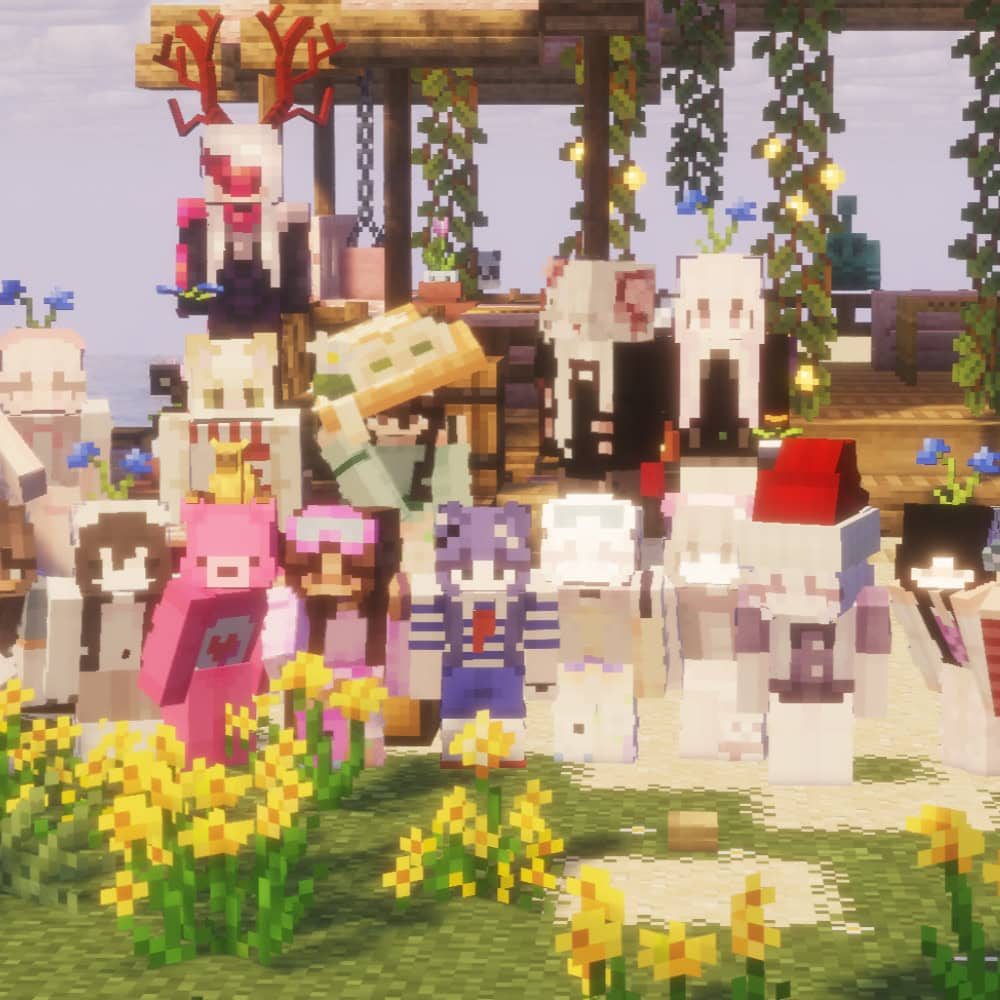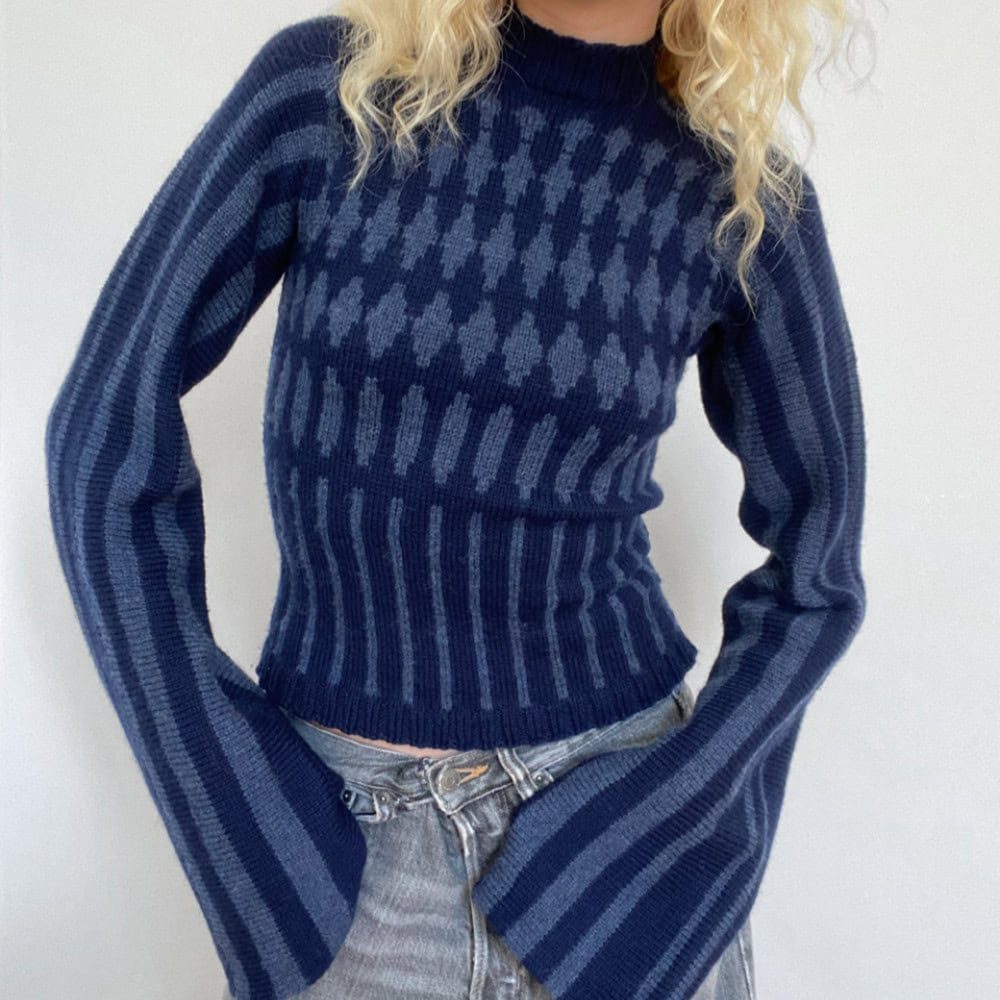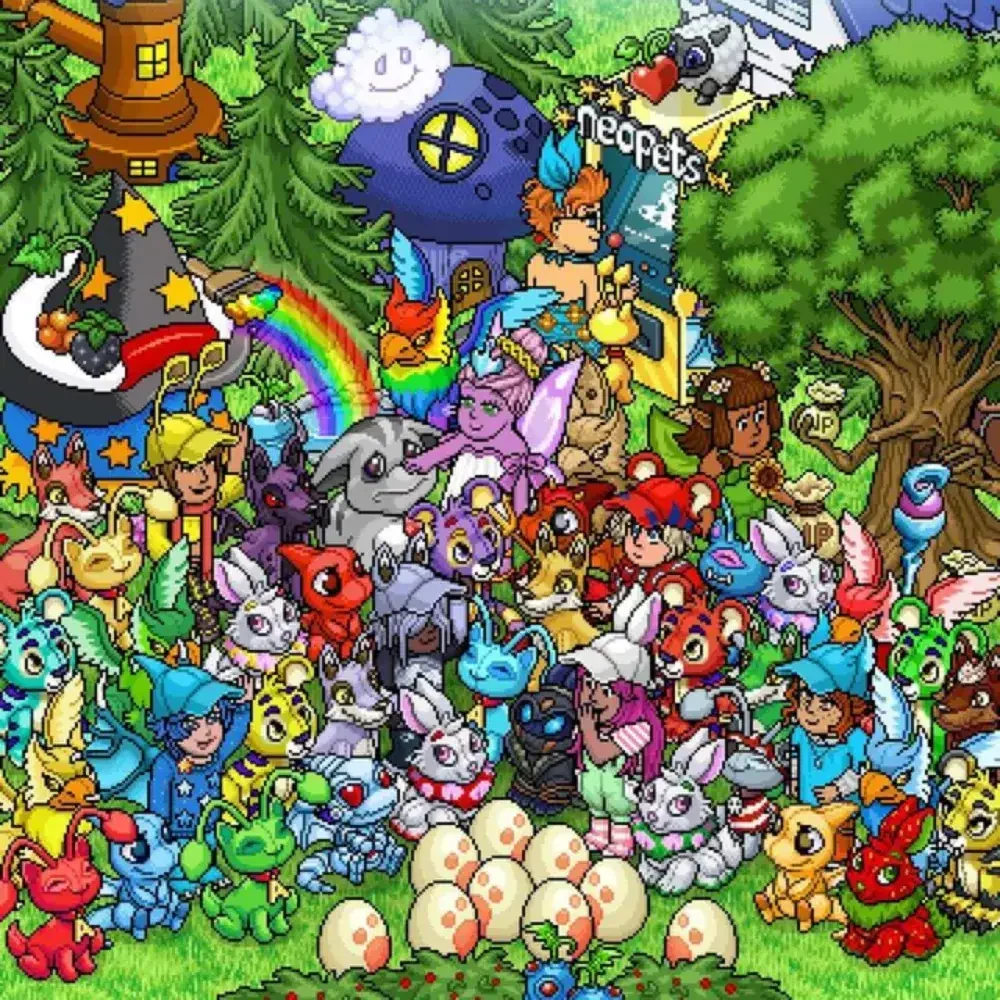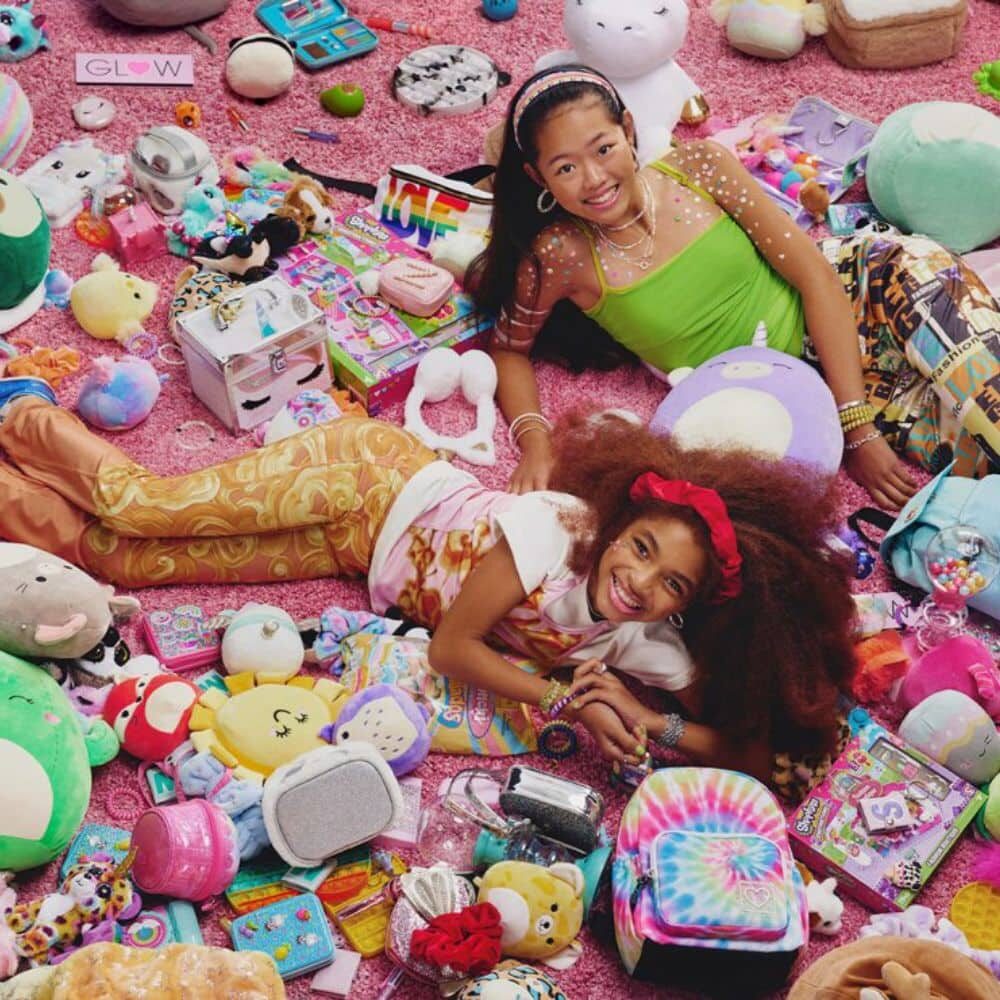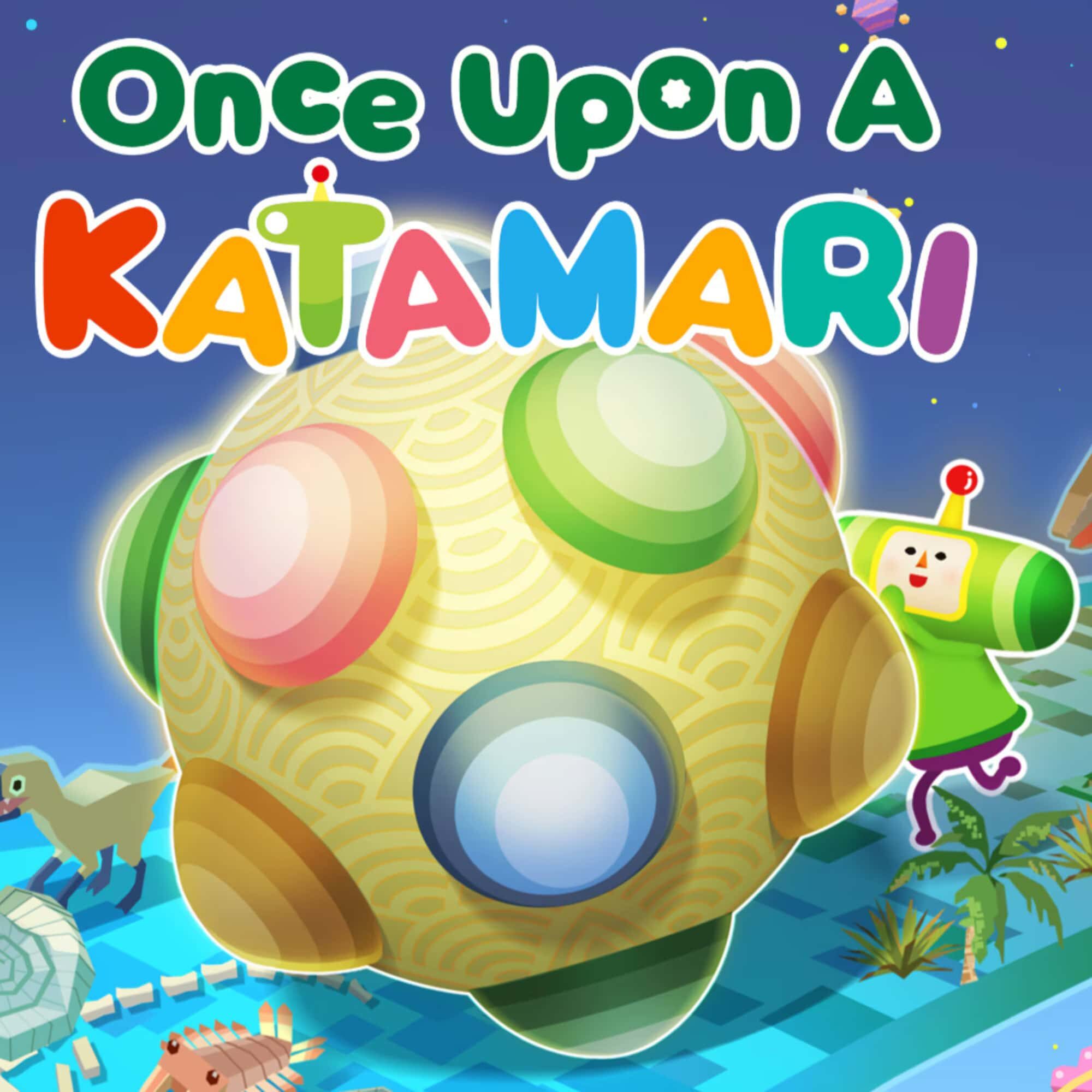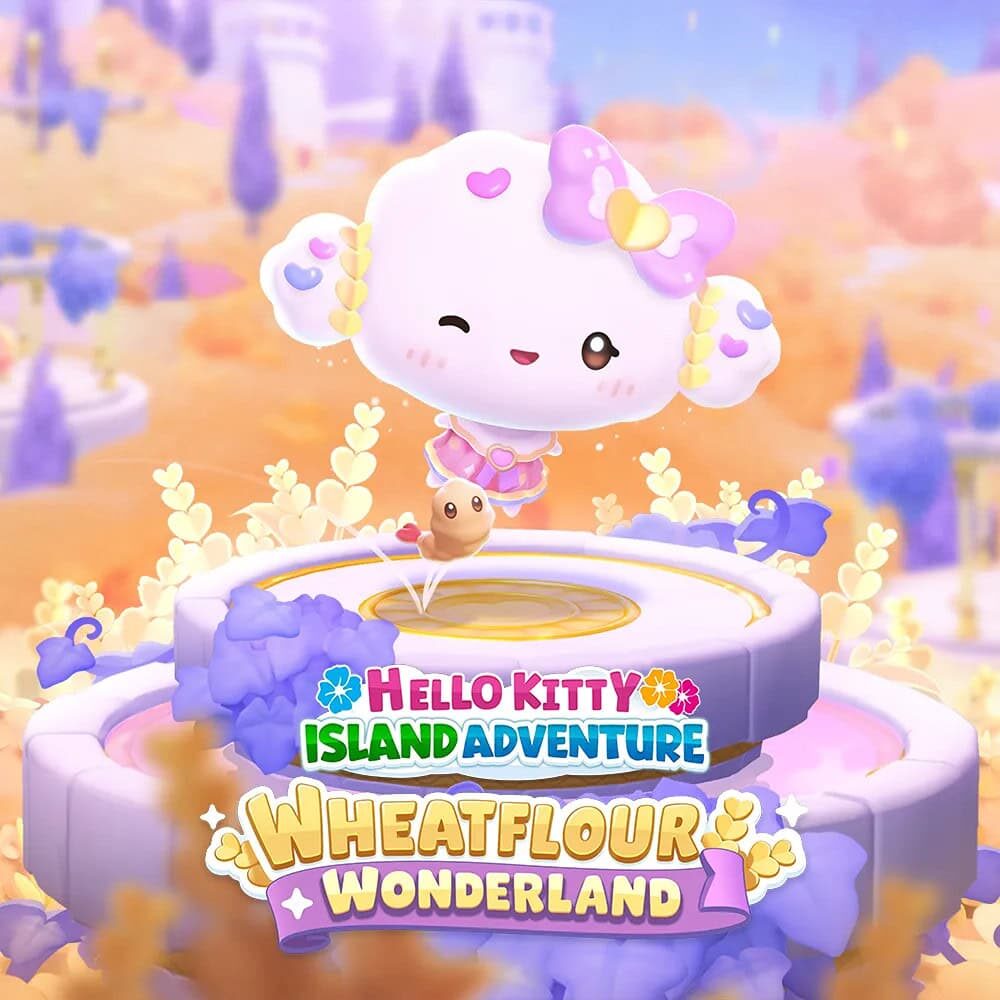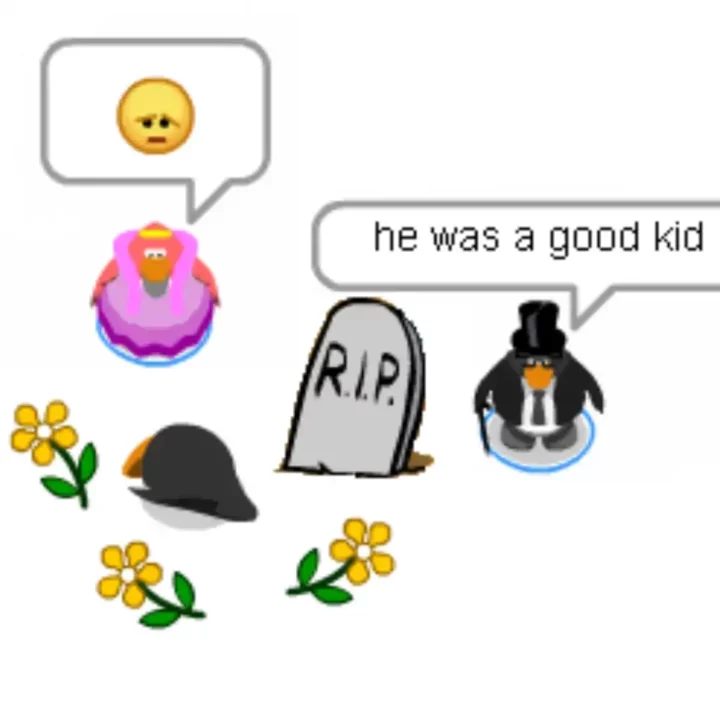
The Death of Flash Games
Exploring the ability to Build Safe Spaces for Girl Gamers – Post Flash If you had a childhood anything like mine, you spent a worrying amount of hours in front of a computer screen, scrolling through hundreds of flash games and virtual worlds. As an introvert, young Oreoluwa filled her needs for social interaction by talking with strangers on a wide range of sites, from Club Penguin to Disney’s Pixie Hollows. I’ve always been into traditionally feminine things, and the online gaming world offered a place for me to express femininity in comfort, through a plethora of makeover and dress-up…
TEXT
Exploring the ability to Build Safe Spaces for Girl Gamers – Post Flash
If you had a childhood anything like mine, you spent a worrying amount of hours in front of a computer screen, scrolling through hundreds of flash games and virtual worlds. As an introvert, young Oreoluwa filled her needs for social interaction by talking with strangers on a wide range of sites, from Club Penguin to Disney’s Pixie Hollows. I’ve always been into traditionally feminine things, and the online gaming world offered a place for me to express femininity in comfort, through a plethora of makeover and dress-up games. The console gaming market has always been focused on young boys but as my brother spent hours on his Xbox, I would find the same entertainment on my mum’s barely functional laptop.
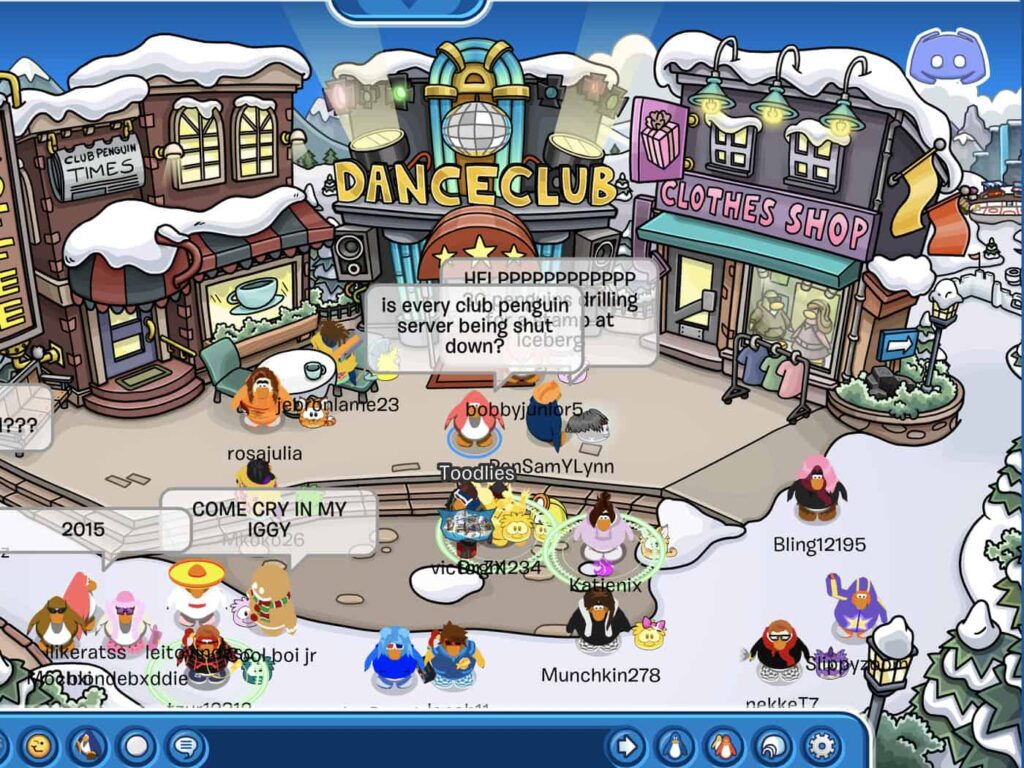
Image from Club Penguin Online
For the past few years, all major web browsers have stopped supporting Adobe Flash Player, the tool that made many of these games possible. It was a painful loss, as if someone had collected all my favourite childhood toys in a room and burned them. The death of Flash and the rise of Unity marked the end of my version of a virtual world and the start of adult life. Unfortunately, this transition was accompanied by some rather underwhelming follow-ups from the game studios of my childhood – yes, I’m looking at you, Moviestarplanet 2 and Club Penguin Island.
As for the flash games that opted for mobile spin-offs, they seemed to focus far more on quantity rather than quality. Say what you want about the often glitchy worlds we used to explore as children, they are miles away from the restrictive, repetitive format of kids’ games that are now the industry standard. Apps that masquerade themselves as ‘free’, hidden behind a plethora of in-app purchases and gameplay that is void of any creativity or imagination. Growing up playing games with very limited customisation denies young girls the experience I had. The opportunity to interact safely with other people my age whilst also exploring my creative side and leaning into my femininity.
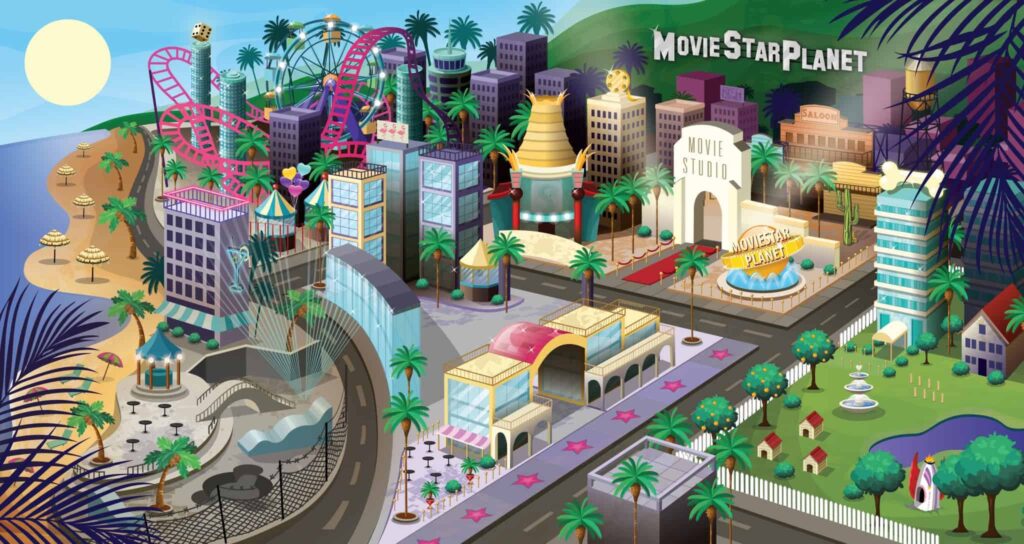
Image from Moviestarplanet
Young girls do not have a lot of space in the gaming world where they can safely play online multiplayer games, a fact any girl who has tried to play games like Habbo Hotel is well aware of. Until very recently, it seemed as if there were very few games promoted towards young girls and those who enjoy feminine content. It’s no new fact that the gaming industry makes games mostly catered towards boys and young men, and the selection of feminine browser games were an anomaly. There was a large variety of games that centred on femininity and feminine interests for young girls to explore – I should add, for free! Accessibility is a huge part of what drew me to browser games, they were free and easy enough for me to navigate as someone in a working class home.
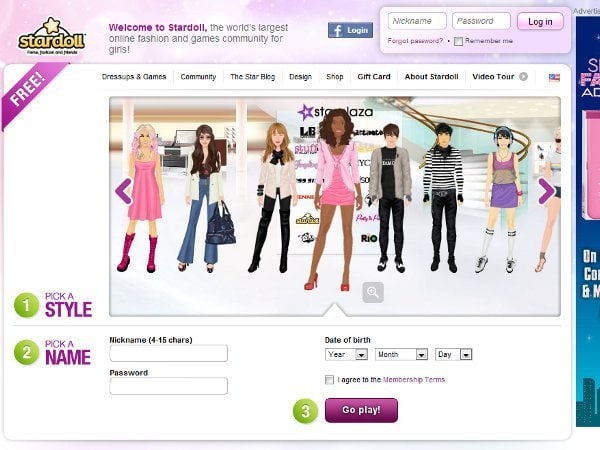
Screenshot from Stardoll
Amidst the 2020 COVID-19 pandemic, many women and girls turned to video games as a form of entertainment. The release of the handheld Nintendo Switch in 2017 created waves in the gaming world, and in 2020 the Switch experienced a price drop. This, and the very timely release of Animal Crossing: New Horizons in March 2020 meant there was a boom in the female-centric gaming sphere. The success of this game led many to turn to other similar games, boosting the popularity of Stardew Valley and The Sims 4 (upon EA’s decision to make the base game free). 2020 is around the time I also turned back to gaming as a hobby of mine, and very soon I saw the rise of more feminine games, marketed as ‘cosy games’. Games like Unpacking, Calico and Dreamlight Valley were released to the same growing market and I witnessed a rise of ‘cosy gaming’ over on TikTok and YouTube. Finally, after years of lacking a safe space in the gaming world, women were creating their own corners of the internet to build connections
As I diversify the types of games I play and branch out into games I would’ve previously never considered due to their heavily masculine marketing, I have found a lot to enjoy. Cosy gaming is more than just farming games and life sims. Cosy games are any sort of video game that does not revolve around competition, ranks and constant action. Even though they are not heavily marketed as such, I believe most cosy gamers would find enjoyment in big-scale visual novel games like Steins:Gate and story-rich RPGs like the Persona series. It’s not that women aren’t interested in gaming – Statista reported in 2023 that 47% of gamers in the United Kingdom are female. The simple – and obvious – fact is games simply aren’t marketed towards us.
I believe that there needs to be more women in the gaming industry, working behind the scenes to make games that are targeted at young girls, creating a safe environment. Women in marketing teams, big studios and production. Women making decisions on what games get made. We are already seeing shifts in that regard, game studios like Silicone Sisters are run by women, for women. Their critically acclaimed game, School 26, is aimed at teenage and preteen girls, with an emphasis on character interaction and customisation. By also leaning into what the young girl audience has to say, they can make games that will centre their priorities. This solution will ideally ensure that girls have the opportunity to experience games made with their interests in mind. As consumers, the best thing we can do is continue to support the indie developers who are making games marketed towards us and donating when we can. Hopefully, in the near future, we can all find spaces in the gaming community where we feel valued and safe – even on your mum’s glitchy laptop.
Exploring the ability to Build Safe Spaces for Girl Gamers – Post Flash
If you had a childhood anything like mine, you spent a worrying amount of hours in front of a computer screen, scrolling through hundreds of flash games and virtual worlds. As an introvert, young Oreoluwa filled her needs for social interaction by talking with strangers on a wide range of sites, from Club Penguin to Disney’s Pixie Hollows. I’ve always been into traditionally feminine things, and the online gaming world offered a place for me to express femininity in comfort, through a plethora of makeover and dress-up games. The console gaming market has always been focused on young boys but as my brother spent hours on his Xbox, I would find the same entertainment on my mum’s barely functional laptop.

Image from Club Penguin Online
For the past few years, all major web browsers have stopped supporting Adobe Flash Player, the tool that made many of these games possible. It was a painful loss, as if someone had collected all my favourite childhood toys in a room and burned them. The death of Flash and the rise of Unity marked the end of my version of a virtual world and the start of adult life. Unfortunately, this transition was accompanied by some rather underwhelming follow-ups from the game studios of my childhood – yes, I’m looking at you, Moviestarplanet 2 and Club Penguin Island.
As for the flash games that opted for mobile spin-offs, they seemed to focus far more on quantity rather than quality. Say what you want about the often glitchy worlds we used to explore as children, they are miles away from the restrictive, repetitive format of kids’ games that are now the industry standard. Apps that masquerade themselves as ‘free’, hidden behind a plethora of in-app purchases and gameplay that is void of any creativity or imagination. Growing up playing games with very limited customisation denies young girls the experience I had. The opportunity to interact safely with other people my age whilst also exploring my creative side and leaning into my femininity.

Image from Moviestarplanet
Young girls do not have a lot of space in the gaming world where they can safely play online multiplayer games, a fact any girl who has tried to play games like Habbo Hotel is well aware of. Until very recently, it seemed as if there were very few games promoted towards young girls and those who enjoy feminine content. It’s no new fact that the gaming industry makes games mostly catered towards boys and young men, and the selection of feminine browser games were an anomaly. There was a large variety of games that centred on femininity and feminine interests for young girls to explore – I should add, for free! Accessibility is a huge part of what drew me to browser games, they were free and easy enough for me to navigate as someone in a working class home.

Screenshot from Stardoll
Amidst the 2020 COVID-19 pandemic, many women and girls turned to video games as a form of entertainment. The release of the handheld Nintendo Switch in 2017 created waves in the gaming world, and in 2020 the Switch experienced a price drop. This, and the very timely release of Animal Crossing: New Horizons in March 2020 meant there was a boom in the female-centric gaming sphere. The success of this game led many to turn to other similar games, boosting the popularity of Stardew Valley and The Sims 4 (upon EA’s decision to make the base game free). 2020 is around the time I also turned back to gaming as a hobby of mine, and very soon I saw the rise of more feminine games, marketed as ‘cosy games’. Games like Unpacking, Calico and Dreamlight Valley were released to the same growing market and I witnessed a rise of ‘cosy gaming’ over on TikTok and YouTube. Finally, after years of lacking a safe space in the gaming world, women were creating their own corners of the internet to build connections
As I diversify the types of games I play and branch out into games I would’ve previously never considered due to their heavily masculine marketing, I have found a lot to enjoy. Cosy gaming is more than just farming games and life sims. Cosy games are any sort of video game that does not revolve around competition, ranks and constant action. Even though they are not heavily marketed as such, I believe most cosy gamers would find enjoyment in big-scale visual novel games like Steins:Gate and story-rich RPGs like the Persona series. It’s not that women aren’t interested in gaming – Statista reported in 2023 that 47% of gamers in the United Kingdom are female. The simple – and obvious – fact is games simply aren’t marketed towards us.
I believe that there needs to be more women in the gaming industry, working behind the scenes to make games that are targeted at young girls, creating a safe environment. Women in marketing teams, big studios and production. Women making decisions on what games get made. We are already seeing shifts in that regard, game studios like Silicone Sisters are run by women, for women. Their critically acclaimed game, School 26, is aimed at teenage and preteen girls, with an emphasis on character interaction and customisation. By also leaning into what the young girl audience has to say, they can make games that will centre their priorities. This solution will ideally ensure that girls have the opportunity to experience games made with their interests in mind. As consumers, the best thing we can do is continue to support the indie developers who are making games marketed towards us and donating when we can. Hopefully, in the near future, we can all find spaces in the gaming community where we feel valued and safe – even on your mum’s glitchy laptop.

Enjoyed this story? Support independent gaming and online news by purchasing the latest issue of G.URL. Unlock exclusive content, interviews, and features that celebrate feminine creatives. Get your copy of the physical or digital magazine today!

